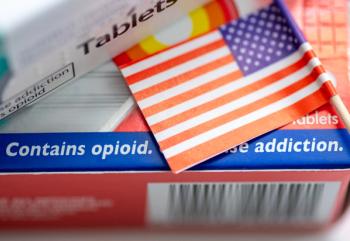
- Drug Topics April 2022
- Volume 166
- Issue 04
OTC Remedies Help With Oral Pain Management
Mouth discomfort can be especially irritating, but there are some products on pharmacy shelves that might be useful.
When a patient presents with oral pain, Jill Morgan’s advice is simple: Ask questions.
That’s because a patient may experience oral pain for various reasons from a canker sore to tooth pain, a wire sticking out of braces, or a burn on the roof of the mouth after eating a hot slice of pizza.
“It’s always the pharmacist’s responsibility to help our patients sort through when an OTC medication is appropriate and when they need to be seen by a health care provider,” said Morgan, PharmD, BCPS, professor and chair in the Department of Pharmacy Practice and Science at the University of Maryland School of Pharmacy in Baltimore.“There are so many [OTC] products that it’s overwhelming. No matter how much burnout there is or how overwhelmed we are with work, at the end of the day, patients are our main priority.”
If a patient arrives at the counter with a canker sore, an OTC treatment such as benzocaine may be appropriate because it will help protect the ulcer while the patient is eating, she explained. According to the Cleveland Clinic, canker sores—which can be painful—are found inside the mouth; they can be caused by stress, a minorinjury, or consuming acidic fruits and vegetables or hot, spicy foods.1
With benzocaine, Morgan advised, it is important to tell patients that using too much can cause methemoglobinemia, a condition in which the amount of oxygen carried through the blood is greatly reduced. Patients should not swallow benzocaine because it can increase the likelihood of seizures; this is a greater con- cern for children and for adults who already have a seizure condition, she added. Because of the risk of methemoglobinemia, the FDA advises against the use of OTC oral drug products for teething infants and children 2 years or younger.2
With tooth pain—especially pain associated with having wisdom teeth removed—Morgan explained that Motrin (ibuprofen) should help; still, the pain should not last long and can also be treated using a wet tea bag.
Patients wearing braces can expe- rience pain due to wires poking the inside of their cheek, said Morgan. Wax products can help, along with mouth rinses, both of which are typically provided by orthodontists.
Although Motrin is also an option, patients should see their orthodontist if the pain persists because ongoing irritation from the wires could cause infection, Morgan said. It’s also important to ask patients whether they have a fever or if the cheek area is warm to the touch, recommended Morgan, noting that both symptoms are signs of an infection.
Treating burns inside the mouth can be a challenge. If a patient burns the roof of their mouth while eating pizza, there is not much a pharmacist can do to help. Morgan’s advice for patients experiencing minor pain is to recommend that they drink cool liquids or do a saltwater rinse. If the pain is particularly intense, the patient should see a physician, she said.
References
- Canker sores. Cleveland Clinic. Updated August 29, 2019. Accessed March 14, 2022.
https://my.clevelandclinic.org/health/diseases/10945-canker-sores - Risk of serious and potentially fatal blood disorder prompts FDA action on oral over-the-counter benzocaine products used for teething and mouth pain and prescription local anesthetics. Updated May 31, 2018. Accessed March 14, 2022.
https://www.fda.gov/drugs/drug-safety-and-availability/risk-serious-and-potentially-fatal-blood-disorder-prompts-fda-action-oral-over-counter-benzocaine
Articles in this issue
almost 4 years ago
Empty Nails Are the Cure for What Ailed Themalmost 4 years ago
Workforce Challenges for Health System Pharmacyalmost 4 years ago
Public Health and Pharmacy Intersect, Providing Opportunitiesalmost 4 years ago
Best Practices to Prevent Vaccination Errorsalmost 4 years ago
Improving Health Care and Medication Access for Minority Populationsalmost 4 years ago
Manage Your Stress for Your Best Healthalmost 4 years ago
OTC Update Reviews New Products, Recalls Since 2020Newsletter
Pharmacy practice is always changing. Stay ahead of the curve with the Drug Topics newsletter and get the latest drug information, industry trends, and patient care tips.























